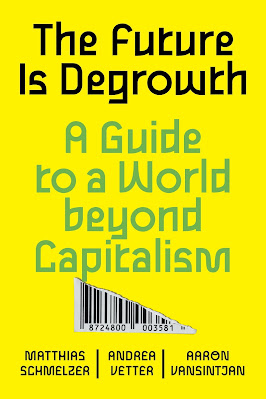Andy Wood's book The Memory of the People is a study of how these relations, and in particular the struggles to end or defend them, shaped how people understood their place in society and their own history. In particular he looks at how what was understood as "custom" was shaped by that history and those struggles. The wider "culture" that is created out of these interacting ideas, relations and customs, should be, Wood argues following Clifford Geertz, "socially and politically".
Karl Marx said once, in a quote that I don't think appears in Wood's book, that "Men make their own history, but they do not make it as they please; they do not make it under self-selected circumstances, but under circumstances existing already, given and transmitted from the past." This sense of humans trying to shape their own futures, but in contexts not determined by, or even favourable to, them runs through his book. For instance, Wood notes that "Peasant rights in forests and woodland... grew out of persistent, everyday friction with their lords".
The book then can be read on two interlinked levels. Firstly, and perhaps most enjoyably, it is filled with anecdotes and accounts that Wood has dug out of historical archives and primary sources, of how ordinary people understood and defended their customs in order to protect or improve their way of life. This review could be filled with some of these quotes and stories and they are by turns inspirational, amusing and fascinating. Some of these customs are clearly about protecting scarce resources:
The 'ancient customs' of Stillington (Yorkshire) specified that the inhabitants of each ancient messuage or cottage could take three wagonloads of turves from the common every year and as much bracken as they could gather between the rising and setting of the sun on 14 September.
As Wood points out, "such rules generated a sense of place that was grounded in common practice, regulated by collective interest". Usually customs like these were considered to have existed in "time out of memory", i.e. before any living person could remember. Frequently they were not written down, and in many fascinating passages Wood shows how the elderly were often called on to give witness and say how things had been in the past. This sometimes meant that older people from communities would tell what they had been told by parents, grandparents and older people in their youth - a social memory that could stretch back hundreds of years. Such historic and custom practice was important - it was also malleable - one a few occasions Wood cites examples were contemporary memory was clearly invented to benefit people today at the expense of the rich and the authorities.
Critically, custom was mixed up with social relations. Lords had to be careful to ensure that their interest were not overwhelmed by this dynamic. They had to remain watchful over the daily processes by which land was exchanged, common rights exercised, fuel collected and so on, because subtle shifts in those daily transactions might gradually see customary regulations shift away from the lord's control.
As Marx and Engels pointed out, class struggle is sometimes hidden and sometimes in the open. The constant push and pull that resulted in custom becoming entrenched was always there. But Wood also highlights that this struggle was not just between rich and poor, but also within communities, one which "pitted the settled poor against the rootless and utterly destitute". One group was out to protect its existing interests and the other to win rights and custom for the future. Wood engages with a number of other historians, sometimes critically, about what the significance was for this.
We have seen how material interests underpinned a wide variety of social conflicts. But we have also observed the ways in which those conflicts over material resources were enmeshed with opposing conceptions of the world: struggles over custom entailed more than conflict over pasture, or minerals, or fuel. They involved contests over memory, identity, entitlement and notions of belonging, legitimacy and community.
It is this sense of communities struggling for their place in the world which makes Wood's book so fascinating. Economics is not enough to understand early modern social relations, what is required is an understanding of how people understood themselves. But economics did matter, and as Wood concludes, the "gentry and nobility" were concerned about custom and developed "growing contempt" for customary claims precisely because they helped the lower classes to defend their rights against the rich.
Ultimately early modern England saw the defeat of the old order, though the process took many hundreds of years. The enclosure of land, the destruction of the commons and the creation of new capital friendly social relations were resisted by the masses. In doing so, ordinary people deployed their historic knowledge, their memories and even written archives to protect their interests. They also fought the authorities, burnt hedges and knocked over walls. This story is the backdrop to the development of capitalism and Andy Wood's brilliant book gives us further insights into a complex process. In doing so he reminds us that ordinary people's resistance drew on a rich culture that was usually ignored by the powerful.
Related Reviews
Wood - The 1549 Rebellions and the making of Early Modern England
Wood - Riot, Rebellion and Popular Politics in Early Modern England
Griffin & McDonagh - Remembering Protest in Britain since 1500: Memory, Materiality & the Landscape



















